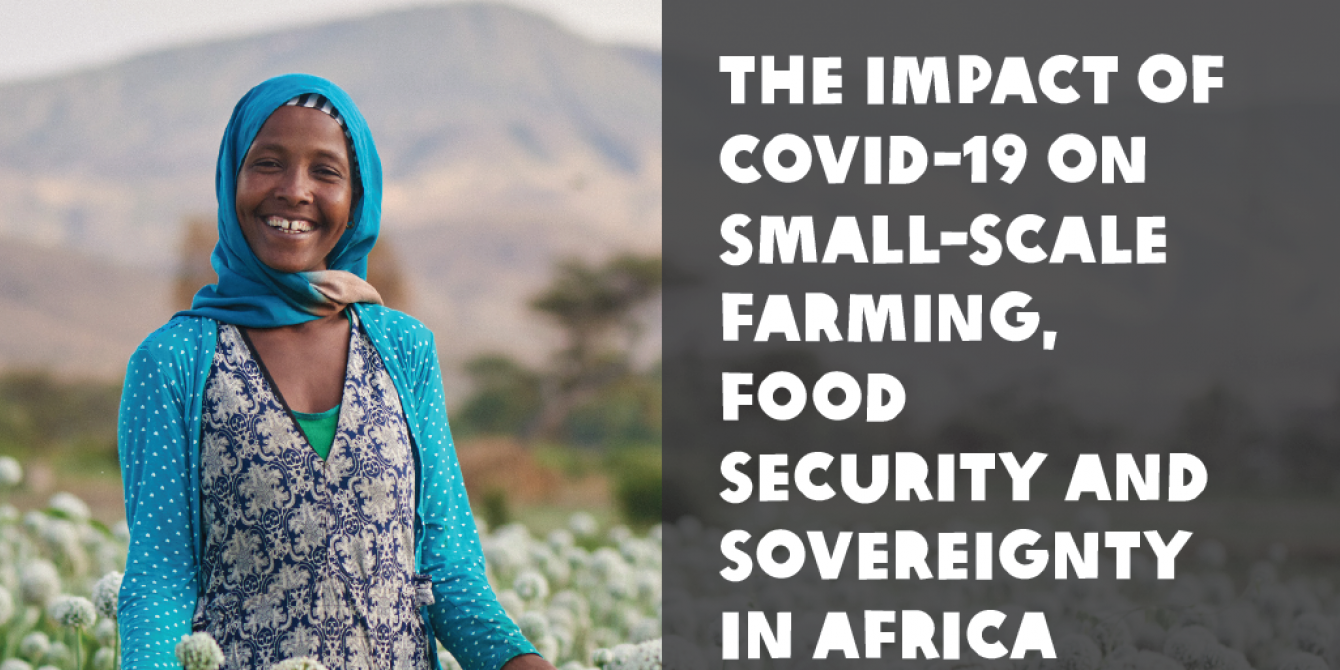THE IMPACT OF COVID-19 ON SMALL-SCALE FARMING, FOOD SECURITY AND SOVEREIGNTY IN AFRICA
A summary of discussions among key stakeholders in three regional economic communities

While the public health risks across Africa are acute, the response to COVID-19 must also ensure that livelihoods and the right to food are protected, given that millions of people have lost their livelihoods and economies are already failing. The economic implications of this pandemic may be more than just health-related if we do not protect smallholder farmers.
Unfortunately, even though agriculture is a priority policy objective of the AU and its RECs, most African nations have not delivered on the commitments made in the Malabo Declaration of 2014: to increase agriculture productivity by 6% through investing at least 10% of the national budget in the agriculture sector. Only four countries are on track to achieve the Malabo Commitments according to the second CAADP Biannual Review Report of 2020: Rwanda, Morocco, Mali and Ghana.10 Burundi is on track to invest more in agriculture; Uganda is on track to end hunger by 2025; and Zimbabwe, eSwatini are on track to eliminate malnutrition. COVID-19 makes a fulfilment by all AU Member States of the commitments in the Malabo Declaration all the more necessary. In a recent declaration11 from the African Ministers of Agriculture on food security and nutrition during the COVID-19-pandemic, African governments committed to ensuring that measures are in place to support the food security and nutrition for all, especially the most vulnerable.
A number of actions have indeed been put in place by governments as an immediate response to COVID-19 and the effects it is having on the population, which is to be applauded. Across the continent, agricultural inputs and livestock feed are being distributed to support food and pastoral production; food stocks for free distribution or for sale at moderate prices are being reinforced; and National Solidarity Funds are being set up. Having said that, when comparing the specific interventions with the structural measures required to strengthen the adaptative capacity of farmers, as well as the immediate responses needed to tackle the current impact of the COVID-19 pandemic, our analysis indicates a number of gaps. To ensure farmers can plant, harvest, market, and benefit from their products through logistical support, subsidies, and market access between rural and urban areas, the following recommendations are being proposed. These will simultaneously stimulate local production essential for food supply and boost incomes for a substantial number of small-scale producers.

 Follow us on Facebook
Follow us on Facebook Follow us on Twitter
Follow us on Twitter YouTube
YouTube